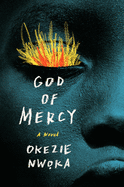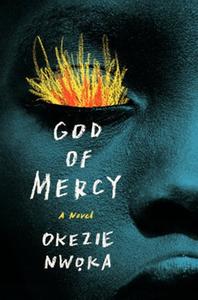
 Tradition and change clash to devastating effect in Okezie Nwoka's compelling and heartrending debut, God of Mercy. The novel is set in two postcolonial African villages, one following Igbo beliefs and the other following a form of Christianity.
Tradition and change clash to devastating effect in Okezie Nwoka's compelling and heartrending debut, God of Mercy. The novel is set in two postcolonial African villages, one following Igbo beliefs and the other following a form of Christianity.
Ichulu villager Ofodile's promising youth has ripened into a troubled and bitter adulthood after years of failing to find a cure for his daughter Ijeoma's inability to speak. The village itself is troubled by flooding and erosion. The dibia, the community's spiritual leader, doctor and adviser, determines that the nearby Christ-worshipping village of Amalike has cursed Ijeoma and Ichulu. An attempt to make peace ends with the killings of several young men from Ichulu and the banishment of the survivors, including Ijeoma's beloved older cousin Uzodi. Ofodile becomes further embittered, believing he has failed to protect his deceased brother's son.
Then Ijeoma gains the power of levitation, hanging in the sky "like fruit too precious to pluck or a thought too erratic to name." The dibia pronounces her ability the sign of a holy war between Chukwu, the highest ranking god, and Ani, whom the village has traditionally worshipped. However, Ofodile sees Ijeoma's flight as just another sign of her abnormalcy. Meanwhile, a sadistic Christian pastor and faith healer in Amalike will stop at nothing to see any hint of Igbo faith stamped out forever, and word of Ijeoma and her ability has reached his ears.
Nwoka writes with a sure rhythm all their own, slipping easily between structured passages and stream of consciousness inner monologues. Alternating between third-person narrative and the diary entries of a mysterious prisoner, God of Mercy translates major religious conflicts to a small, personal scale. The faith healer in Amalike personifies the evangelical belief that only the Christian god is real, and that other religions must be eliminated. At the same time, Ichulu's citizens go through confusion and conflict as the apparent war between their deities calls into question beliefs and rituals they have adhered to for many years. At the center of the storm, Ijeoma's pure heart and sense of compassion alter the trajectory of events in ways that will earn readers' affection but leave them fearing for her. While the front matter includes a map and cast of characters, Nwoka trusts readers to follow the story without much expository cultural background, and the result feels authentic and organic. Book clubs looking for stories to inspire deep discussion need look no further. --Jaclyn Fulwood, blogger at Infinite Reads
Shelf Talker: Okezie Nwoka's compelling debut follows crisis and conflict between a traditional Igbo village and a neighboring village of Christian converts, spurred on by a girl who can fly.

